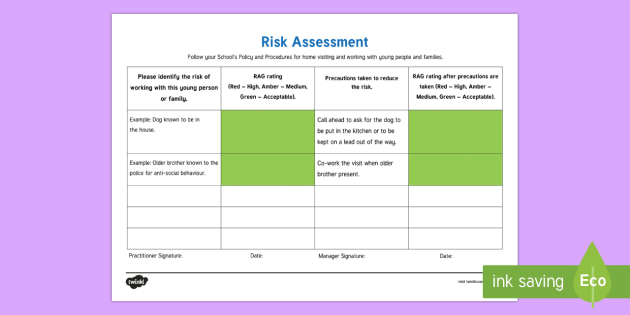
Generalists manage a wide range of HR tasks. They are responsible for balancing the needs both of the corporation and the individual employees. They are also required to keep current with all HR regulations. However, the role is not without its challenges. In this article, we'll examine some of the most important aspects of the role and the requirements for those interested in pursuing this career. We will also address education and salary requirements. Finally, we'll offer career path options for those who want to get into this field.
Job description
Your workday as an HR Generalist will vary depending on which industry you are in. It will depend on the season and the place. Your typical day will begin with a cup of coffee, and then you will start your daily to-do list. You may have to coordinate changes in employee welfare programs, attend meetings, or create documents. You might also be responsible at employee orientation.
A Generalist also has the responsibility of managing performance appraisals. These are regular events in which the HR professional meets with the manager to assess an employee's performance. This is a shared responsibility between the HR department and the business. Many important decisions about an employee’s future will be made on the basis of these evaluations. There are specialists available to fill this role in larger organizations. However, HR Generalists should be familiar with the business functions of those responsible for managing performance appraisals.

Education requirements
The education requirements of a generalist position in HR may vary depending on company and industry. Employers may require a high education, but they also prefer candidates with relevant work experience. You should know that not only do you need HR experience, but many other fields also offer transferable skills. People with backgrounds in accounting, finance, marketing or law might find it useful to get an MBA or Master's in Human Resources.
A Human resources generalist must be able to analyze and comprehend key HR metrics. They might need to train others in new systems. They should also be familiar with digital tools and technologies. This includes pre-assessment tools and recruitment technology. They must also be proficient in online collaboration platforms and communication. This will enable them to be effective advisors to their clients. Furthermore, an HR Generalist must have the ability handle confidential information.
Salary
The average salary for a generalist working in human resources depends on the industry and where they work. They oversee the day to-day operations and management of human resources offices. They monitor employee evaluations and help to develop and implement HR policies. They must be multi-taskers who can handle multiple projects at once. This includes managing and maintaining an organization's activities as well as hiring, firing, and managing employees. This makes them indispensable to small businesses as well.
A Bachelor's degree in human resource management or another related field is required for HR generalists. They also need some experience. Many generalists also complete internships, which give them a feel for the job and the duties. Salary for generalist HR varies widely by industry and responsibility. Those with a bachelor's degree earn less than those with more experience. Generalists in HR need to have at minimum two years' experience to get a good wage.

Career path
You can gain more experience by working as a generalist in HR. A generalist in HR allows you to take on a wider range of responsibilities and is more flexible than being a specialist. You can work in many HR areas, but generalists have the potential to move up to a higher-ranking position, such a human resources director. As an HR generalist, you need to be organised and multi-tasking, otherwise, you will not be able to perform your best in the position.
If you're interested in working in HR, a generalist role may be the best option for you. A generalist role will allow you to work with many employees and take on a variety of tasks. Larger organizations may require a team of specialists to help with specific issues or provide personalized attention to employees. You will most likely be working in an office environment. However, generalist positions may allow you to travel and enjoy the lifestyle of the jet set. It's likely that you will spend much of your time traveling to campus and job fairs, looking for candidates.
FAQ
Why is project management so important?
To ensure projects run smoothly and meet deadlines, project management techniques are employed.
This is due to the fact that most businesses rely heavily upon project work in order to produce goods, and services.
Companies need to manage these projects efficiently and effectively.
Without effective project management, companies may lose money, time, and reputation.
What kind people use Six Sigma?
Six sigma is a common concept for people who have worked in statistics or operations research. Anybody involved in any aspect or business can benefit.
It requires high levels of commitment and leadership skills to be successful.
What does the term "project management” mean?
We mean managing the activities involved in carrying out a project.
We include defining the scope of the project, identifying the requirements, preparing the budget, organizing the project team, scheduling the work, monitoring progress, evaluating results, and closing down the project.
What is Six Sigma?
This is a method of quality improvement that emphasizes customer service, continuous learning, and customer service. The goal is to eliminate defects by using statistical techniques.
Motorola developed Six Sigma in 1986 to help improve its manufacturing processes.
It was quickly adopted by the industry and many companies are now using six-sigma to improve product design, production, delivery, customer service, and product design.
What are the four major functions of Management?
Management is responsible for planning, organizing, directing, and controlling people and resources. Management also involves setting goals and developing policies.
Management aids an organization in reaching its goals by providing direction and coordination, control, leadership motivation, supervision, training, evaluation, and leadership.
The following are the four core functions of management
Planning - Planning is about determining what must be done.
Organizing - Organization involves deciding what should be done.
Direction - This is the art of getting people to follow your instructions.
Controlling – This refers to ensuring that tasks are carried out according to plan.
What is TQM exactly?
The industrial revolution led to the birth and growth of the quality movement. Manufacturing companies realized they couldn't compete solely on price. They needed to improve quality and efficiency if they were going to remain competitive.
Management realized the need to improve and created Total Quality Management, which focused on improving all aspects within an organization's performance. It included continuous improvement, employee involvement and customer satisfaction.
It can sometimes seem difficult to make business decisions.
Complex systems are often complex and have many moving parts. Their leaders must manage multiple priorities, as well as dealing with uncertainty.
It is important to understand the effects of these factors on the system in order to make informed decisions.
It is important to consider the functions and reasons for each part of the system. Next, consider how each piece interacts with the others.
You need to ask yourself if your previous actions have led you to make unfounded assumptions. If you don't have any, it may be time to revisit them.
Asking for assistance from someone else is a good idea if you are still having trouble. You may be able to see things from a different perspective than you are and gain insight that can help you find a solution.
Statistics
- This field is expected to grow about 7% by 2028, a bit faster than the national average for job growth. (wgu.edu)
- The profession is expected to grow 7% by 2028, a bit faster than the national average. (wgu.edu)
- As of 2020, personal bankers or tellers make an average of $32,620 per year, according to the BLS. (wgu.edu)
- UpCounsel accepts only the top 5 percent of lawyers on its site. (upcounsel.com)
- The BLS says that financial services jobs like banking are expected to grow 4% by 2030, about as fast as the national average. (wgu.edu)
External Links
How To
How can I obtain my Six Sigma license
Six Sigma is an effective quality management tool that can improve processes and increase productivity. It is a process that helps businesses achieve consistent results in their operations. Named after the Greek word for "sigmas", the name refers to the first two letters. Motorola developed this process in 1986. Motorola realized they needed to standardize the manufacturing processes to produce products faster and cheaper. The many people involved in manufacturing had caused problems with consistency. To solve this problem, they decided to use statistical tools such as control charts and Pareto analysis. Then, they would apply these techniques in every area of the operation. After applying the technique, they could make improvements wherever there was potential. To get Six Sigma certified, there are three key steps. To determine whether you are qualified, the first step is to verify your eligibility. You'll want to take some classes and pass them before you start taking any tests. After passing the classes, you will be able to take the tests. You'll need to go back and review all the information you received in class. You'll then be prepared to take the exam. You will be certified if you pass the test. Finally, you will be able add your certifications onto your resume.